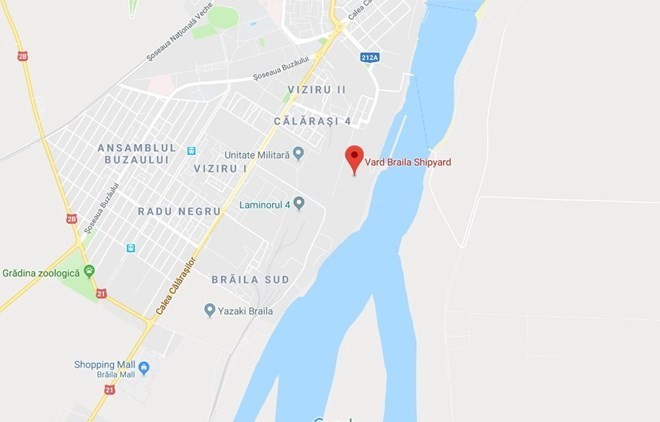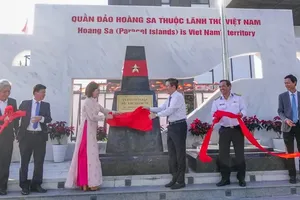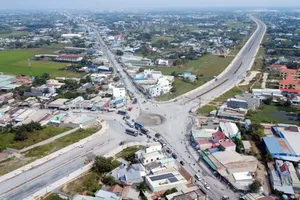
The company hasn’t been able to find enough Romanian workers to meet its needs, the news website wrote.
“It’s very difficult to find workforce, although we have been trying for over a year and we have ads everywhere,” said Alina Puia, the shipyard’s manager. “Work is hard here and now people are looking for better paid and easier jobs,” she added.
The Braila shipyard, which is part of Norwegian shipbuilder VARD, a subsidiary of Italian group Fincatieri, operates nine shipbuilding facilities, including five in Norway, two in Romania, one in Brazil and one in Vietnam.
The group has brought the workers from its shipyard in Vietnam. Other shipyard in Romania, located in Tulcea, also recruited about 300 Vietnamese workers last year.
The Vard shipyards in Braila and Tulcea can produce any type of vessel and have their capacities covered with orders until 2025, according to Mauro Leboffe, the executive who coordinates the operations of the two shipyards. The orders include cruise ships, electrical ferries, polar expedition ships, fishing vessels, offshore operations vessels and coast patrol vessels.
Earlier, the newspaper reported that Romania could start to employ IT specialists from Asian countries on temporary contracts of up to two years to make up the labour deficit in the local IT industry.
So far, Romanian employers have been recruiting workers from Vietnam, Nepal and the Philippines for positions in the hospitality, manufacturing and construction sectors.
“In the last few months, we have started evaluating more seriously the selection and recruiting of IT specialists from Asia, like Vietnam, who would be posted in Romania for limited periods,” said Razvan Rada, the general manager of HR recruiting agency Head Hunting IT.
Some 178,700 employees currently work in the country’s ICT sector, 84,000 of whom work in the IT services area.
Local universities produce some 6,000-7,000 IT graduates each year, but the demand from the local market is double. Thus, recruiting specialists from Asian countries like Vietnam has become a necessity, as Romanian specialists who work abroad don’t want to return, despite the fact that the IT sector pays the highest average salaries in the local economy.
“It’s very difficult to find workforce, although we have been trying for over a year and we have ads everywhere,” said Alina Puia, the shipyard’s manager. “Work is hard here and now people are looking for better paid and easier jobs,” she added.
The Braila shipyard, which is part of Norwegian shipbuilder VARD, a subsidiary of Italian group Fincatieri, operates nine shipbuilding facilities, including five in Norway, two in Romania, one in Brazil and one in Vietnam.
The group has brought the workers from its shipyard in Vietnam. Other shipyard in Romania, located in Tulcea, also recruited about 300 Vietnamese workers last year.
The Vard shipyards in Braila and Tulcea can produce any type of vessel and have their capacities covered with orders until 2025, according to Mauro Leboffe, the executive who coordinates the operations of the two shipyards. The orders include cruise ships, electrical ferries, polar expedition ships, fishing vessels, offshore operations vessels and coast patrol vessels.
Earlier, the newspaper reported that Romania could start to employ IT specialists from Asian countries on temporary contracts of up to two years to make up the labour deficit in the local IT industry.
So far, Romanian employers have been recruiting workers from Vietnam, Nepal and the Philippines for positions in the hospitality, manufacturing and construction sectors.
“In the last few months, we have started evaluating more seriously the selection and recruiting of IT specialists from Asia, like Vietnam, who would be posted in Romania for limited periods,” said Razvan Rada, the general manager of HR recruiting agency Head Hunting IT.
Some 178,700 employees currently work in the country’s ICT sector, 84,000 of whom work in the IT services area.
Local universities produce some 6,000-7,000 IT graduates each year, but the demand from the local market is double. Thus, recruiting specialists from Asian countries like Vietnam has become a necessity, as Romanian specialists who work abroad don’t want to return, despite the fact that the IT sector pays the highest average salaries in the local economy.
























